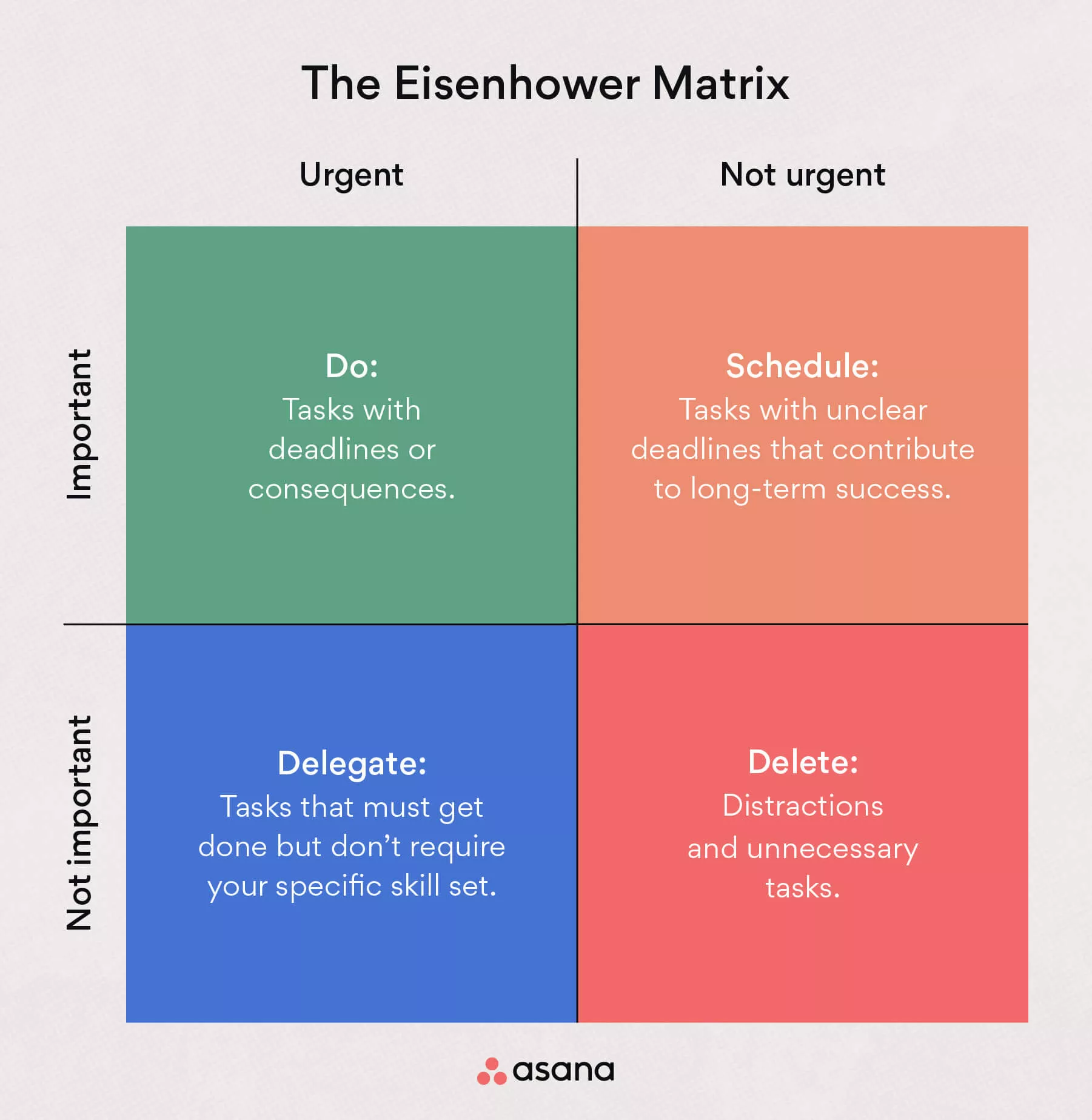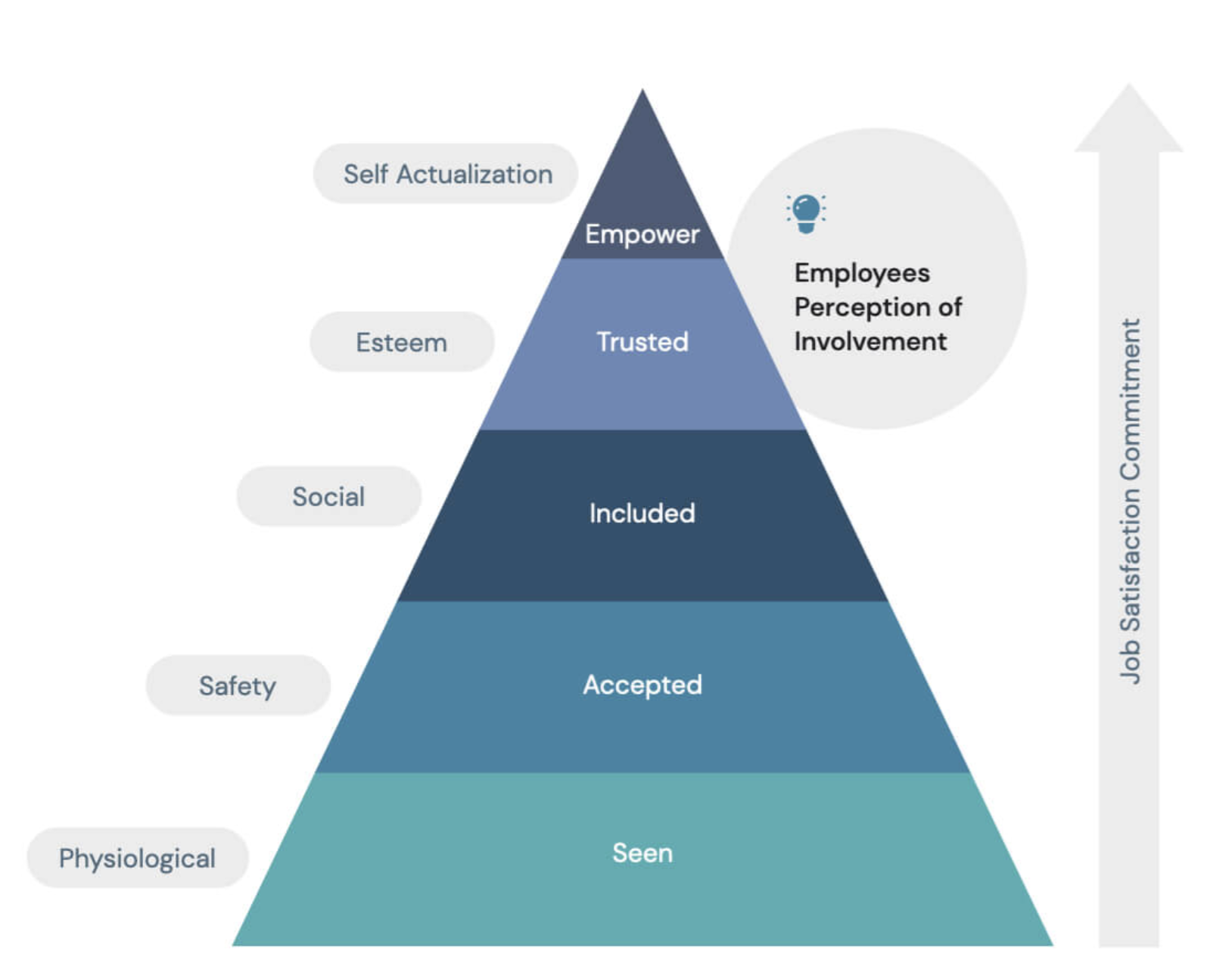Time Management ⏱️
General

- Prioritize based on importance and deadline. Focus first on high priority tasks with looming deadlines while keeping track of less urgent tasks.
- Build time buffers into your estimates. If you think a task will take 5 hours, estimate 7-8 hours to account for interruptions and unknowns.
- Set aside time for planning each day - each morning or evening reviewing your priorities, checking your estimates are still valid, and planning your next day. Communicate early if you see a drift.
- Say ‘No’ to non-essential meetings and tasks. Protect your planned work time.
- Take breaks to recharge. Short breaks help you stay focused when working. It can also be by checking how your coworker is doing on a different topic.
- Be careful with your ambitions and goals each day/week. You can try to impress or prove yourself you can do it but
also be mindful it doesn’t affect you for the long run. Examples:
- Emotional attachment: “I spent my nights on this task, and we’re canceling it?”
- Mentally Unavailable: Unable to think straight, and tired of the hours put in the previous feature and forced to default to simple tasks for some time.
- Irritability: Being more aggressive than usual, likely also due to tiredness, and trying to achieve too much.
What you should expect from your manager or lead

A part of it depends on the trust you are developing with your manager or tech lead.
- Don’t micromanage - Trust me to manage my own time and tasks
- Respect personal time - Don’t expect during the weekend or after-hours responses unless truly urgent.
- Don’t dictate every detail - Give me ownership and autonomy over my projects.
- Continuous feedback - Don’t wait for quarter or annual reviews, give timely feedback so I can improve.
- Shield the team - Avoid unnecessary meetings, last minute “rush” requests and fire drills whenever possible.
- Don’t limit me to mundane tasks - Provide challenges and opportunities to learn.
- Challenge fairly - Assign me problems to grow skills, not overwhelm abilities. The other way, trust your manager if he thinks you can do something you doubt yourself about, the only way to know sometimes is to jump.
- Clarity on next-level requirements - Define the skills, capabilities and deliverables needed for my promotion. Discuss progress in regular check-ins. Provide coaching and feedback tied to advancement
Know yourself
- Identify your peak productive hours - Are you an early bird who does your best work in the morning? Or do you prefer working late at night when it’s quiet? Know when you focus best.
- Pay attention to your environment - Do you need silence or music to focus? Is a noisy cafe stimulating or distracting? Figure out your ideal work setting.
- Be adaptable when making break versus push through decisions - Consider factors like task complexity, milestones, energy level, hunger signals, and timing. Sometimes pushing through when “in the zone” pays off. Other times, taking a replenishing break sets you up for stronger performance afterward. Apply situational awareness in the moment rather than rigid adherence to one approach.
- Review your own patterns - Are you more productive tackling harder tasks first? Or do you prefer to build momentum with easier items?
- Identify and prioritize areas for improvement - Am I procrastinating? perfectionist? too defensive? do I default to isolation over collaboration? Assumption over seeking information? Once identified, half of the work is done!
Tools
Find tools that enable your optimal workflow. For example, I gravitate towards note-taking tools supporting markdown for documentation portability. But the “best” tool is the one that maximizes your personal productivity, there is no one-size-fits-all silver bullet.
Experiment to determine which tools best match your style and needs. I listed mine on Productivity Tools.
Last updated on